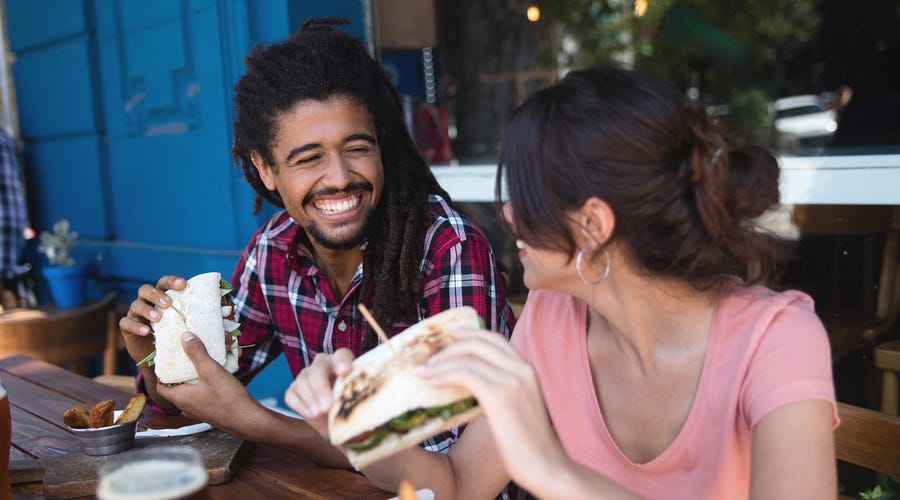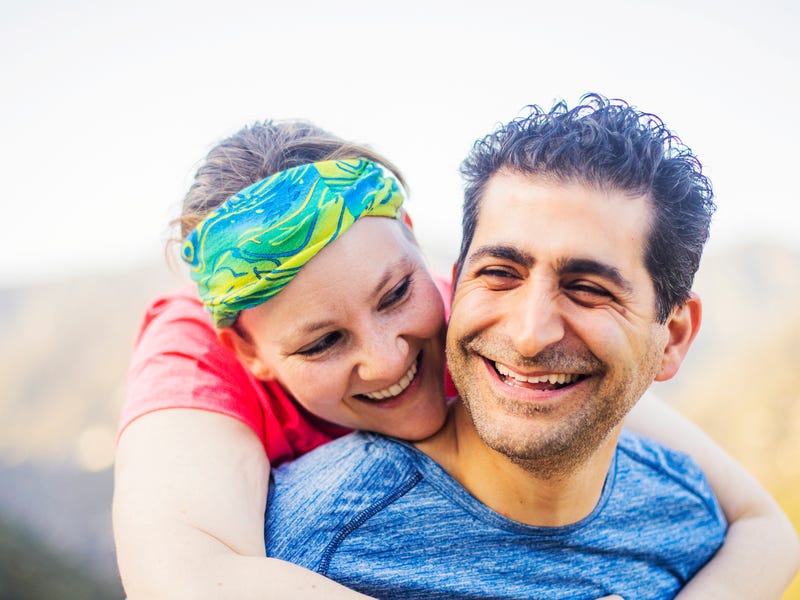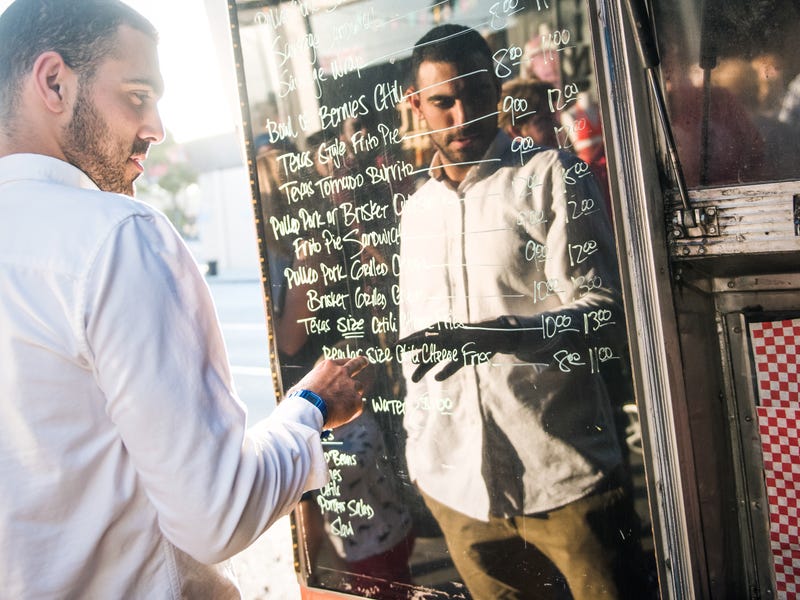
80 authentic ways to say thank you and you're welcome in Spanish
Author: Marco Monroy
If you consider yourself a polite person, you need to learn how to say thank you and you’re welcome in Spanish right away.
Because, how else would you be able to show appreciation in Spanish? Saying ‘thank you’ and ‘you’re welcome’ are some of the building blocks of society, as they help us show each other that we care about them and appreciate what they do for us.
These words and phrases help us acknowledge the humanity in all of us and make our day-to-day interactions less transactional. Life would be dry, cold, and perhaps even a little bit rude without these magic words. So, if you haven’t yet learned how to say thank you in Spanish, let us show you right away!
We’ll cover different ways to say thank you that you can use in many different contexts. We’ll also cover how to say you’re welcome in Spanish like a pro, without sounding like a robot by saying “you’re welcome” verbatim every single time.
Ready to get started? Let’s go!

Why learn how to say thank you and you’re welcome in Spanish
To be more polite
You just can’t go around life without saying thank you and you’re welcome. Otherwise, people might perceive you’re a rude person, even though you’re not!
Even if you keep your daily interactions at a minimum, you should be able to properly thank people anytime they help you with anything. And, although they might understand what you mean if you thank them in English (and a polite smile does go a long way!), saying the words in their native language will show genuine appreciation rather than a simple obligation.
To diversify your vocabulary
There are only so many times we can say thanks and you’re welcome before we start sounding robotic. That’s why we tend to switch it up with alternative phrases like “thank you very much,” “you got it!,” and “no worries.”
The same is true in Spanish. If you’re looking to really progress beyond beginner in the Spanish language, you’ll need to learn at least a handful of ways to say thanks and you’re welcome. There is no better way to impress fluent speakers than by commanding multiple ways of expressing the same idea!
To show your appreciation of others
Finally, you should want to learn these phrases to show your appreciation of others. We all meet people who help us tremendously or significantly impact our lives. What better way to show our appreciation than by taking the time to thank them earnestly?
We’ll show you a few phrases to express a heartfelt thank you to your loved ones. We’ll also cover a few ways to write appreciation thank you notes for different occasions, so you can put pen to paper if you want to really show you’re grateful!

How to say thank you in Spanish
First things first: how to say thank you in Spanish. The direct translation of both “thank you” and “thanks” is gracias (grassy-as). This will be an acceptable way of showing appreciation in virtually every situation, except maybe in those instances where a simple thank you is not enough.
With that said, there are countless alternative ways to say thanks in Spanish. Some of them include Spanish slang, so they’ll certainly help you sound more like a native. Here are some of our favorite ways to say thanks.
| English | Spanish | IPA Spelling | Pronunciation | Context |
|---|---|---|---|---|
| Thank you | Gracias | ˈɡɾasjas | Grassy-as | Neutral thanks. |
| Thanks | Gracias | ˈɡɾasjas | Grassy-as | Neutral thanks. |
| Thank you very much | Muchísimas gracias | muˈʧisimas̬ ˈɣɾasjas | Moo-chee-see-mas grassy-as | Enthusiastic thanks. |
| Thanks again | Gracias de nuevo | ˈɡɾasjas̬ ðe ˈnweβo | Grassy-as day noo-ay-vo | |
| No thank you | No, gracias | ˈno | ˈɡɾasjas | No grassy-ass | Neutral way to say no thanks. You can combine this with other ways to say thanks, e.g. “no, muchísimas gracias.” |
| Okay thank you | Ok, gracias | ˈok | ˈɡɾasjas | Okay grassy-as | When accepting something and saying thanks. |
| Thank you my friend | Gracias, mi amigo/a | ˈɡɾasjas | mj amiˈɣoa | Grassy-as me ah-mee-go | Thanking a friend. |
| Thank you for everything | Gracias por todo | ˈɡɾasjas poɾ ˈtoðo | Grassy-ass pore toe-doh | Expressing gratitude to someone for a series of actions. |
| Thank you, have a nice day | Gracias, que tengas un buen día | ˈɡɾasjas | ˈke ˈtɛ̃nɡas ũm ˈbwɛ̃n ˈdia | Grassy-as kay ten-gas oon boo-en dee-ah | Thanking someone and wishing them a nice day. |
| Thank you for your help | Gracias por tu ayuda | ˈɡɾasjas poɾ tw aˈʝuða | Grassy-as pore too ah-yoo-da | Thanking someone who just helped you with something. |
| Thank you for coming | Gracias por venir | ˈɡɾasjas poɾ βeˈniɾ | Grassy-as pore veh-neer | Thanking someone who just paid you a visit. |
| Many thanks | Muchas gracias | ˈmuʧas̬ ˈɣɾasjas | Moo-chas grassy-as | Enthusiastic thanks. |
| A thousand thanks | Mil gracias | ˈmil ˈɣɾasjas | Meel grassy-as | Very enthusiastic thanks. |
| Thank you for your business | Le agradecemos su preferencia | le aɣɾaðeˈsemos su pɾefɛˈɾɛ̃nsja | Lay ah-grah-day-say-mos sue pray-fay-ren-see-ah | Thanking a customer for doing business with you. |
| Thank you for the gift | Gracias por el detalle | ˈɡɾasjas poɾ ɛl dɛˈtaʝe | Grassy-as pore elle day-tah-ye | Thanking someone who just gave you a gift. Note that detalle is used for smaller gifts. For bigger gifts, you can use its augmentative detallazo instead. |
| Thank you for listening | Gracias por su atención | ˈɡɾasjas poɾ sw atɛ̃nˈsjõn | Grassy-as pore sue ah-ten-see-on | Thanking customers or guests for listening to an announcement. |
| Thank you for listening to me | Gracias por escucharme | ˈɡɾasjas poɾ ɛskuˈʧaɾme | Grassy-as pore es-coo-char-may | Thanking a friend who just listened to you venting or gave you advice. |
| Thanks for your understanding | Gracias por su comprensión | ˈɡɾasjas poɾ su kõmpɾɛ̃nˈsjõn | Grassy-as pore sue come-pren-see-on | Thanking someone for being. understanding after an inconvenience. |
| Thanks in advance | Gracias de antemano | ˈɡɾasjas̬ ðe ãnteˈmano | Grassy-as day an-tay-ma-no | Thanking someone before they do or agree to do something for you in anticipation that they will do it. |
| Thank you for your service | Gracias por su servicio | ˈɡɾasjas poɾ su sɛɾˈβisjo | Grassy-as pore sue ser-vee-see-oh | Thanking someone who currently serves or served in the military. |
| Thank you for your hard work | Gracias por tu arduo trabajo | ˈɡɾasjas poɾ tw ˈaɾðwo tɾaˈβaxo | Grassy-as pore sue ar-doo-oh tra-ba-ho | Thanking an employee or contractor who did a lot of (presumably) good work for you. |
| Thank you for your support | Gracias por tu apoyo | ˈɡɾasjas poɾ tw aˈpoʝo | Grassy-as pore too ah-po-yo | Thanking someone in a working environment. |
| Thank you for the birthday wishes | Gracias por las felicitaciones por mi cumpleaños | ˈɡɾasjas poɾ las felisitaˈsjones poɾ mi kũmpleˈaɲos | Grassy-as pore las fey-lee-see-ta-see-oh-nes pore me coom-play-ah-nios | Thanking people’s well-wishes during or after your birthday. |
| Thank you for being a friend | Gracias por ser un buen amigo | ˈɡɾasjas poɾ ˈsɛɾ ũm ˈbwɛn aˈmiɣo | Grassy-as pore ser oon boo-en ah-me-go | Thanking someone for being a good friend to you. |
| Thank you for the ride | Gracias por darme un aventón | ˈɡɾasjas poɾ ˈðaɾme u̯n aβɛ̃nˈtõn | Grassy-as pore dar-may oon ah-ven-ton | Thanking someone who just gave you a ride. |
| Thank you my brother | Gracias, mi hermano/a | ˈɡɾasjas | mj ɛɾmaˈnoa | Grassy-as, me er-ma-no | Thanking a close friend or a literal sibling. |
| Thanks for asking | Gracias por preguntar | ˈɡɾasjas poɾ pɾeɣũnˈtaɾ | Grassy-as pore pray-goon-tar | Thanking someone for asking a very thoughtful question |
| Thank you for letting me know | Gracias por hacérmelo saber | ˈɡɾasjas poɾ aˈsɛɾmelo saˈβɛɾ | Grassy-as pore ah-ser-may-lo sah-bear | Thanking someone for giving you a heads up about something |
| You’re the best! | ¡Eres el mejor! | ˈɛɾes ɛl meˈxoɾ ‖ | Eh-res elle may-hore | Thanking someone by simply saying they’re the best |
| I am grateful to you for what you did | Te lo agradezco | te lo aɣɾaˈðɛsko | Tay low ah-grah-dess-co | This may sound weird in English but is a very common way to say thanks in Spanish |
| It is appreciated | Se agradece | se aɣɾaˈðese | Say ah-gra-day-se | Another very common way to thank someone in Spanish |
| Very kind | Muy amable | mwj aˈmaβle | Mooy ah-ma-blay | It’s very common to tell someone that they are kind instead of actually saying gracias. Or, you could combine them in a gracias, muy amable. |
| Cool | Buena onda | ˈbwena ˈõnda | Boo-eh-na on-dah | This is most common in Guatemala, similar to saying “that’s cool that you ____” to express gratitude. |
| Okay | Vale | ˈbale | Vah-lay | You’ll most likely hear this informal way to say thanks in Central and South American countries. |
| Give it | Dale | ˈdale | Dah-lay | This word can mean a lot of things in Spanish, but in some countries like Colombia and Argentina it can mean an informal thanks. |
| To you | A ti | a ˈti | Ah tee | When someone says thanks to you but you want to say that you are the one who should be thanking them. |
How to give a heartfelt thank you in Spanish
Sometimes, people go above and beyond for you. And when they do, the least you can do for them is reciprocate with a heartfelt thank you. There are many ways to go about this, but here are some of our favorite ways to show genuine appreciation in Spanish.
| English | Spanish | IPA Spelling | Pronunciation |
|---|---|---|---|
| A heartfelt thank you | Un agradecimiento de todo corazón | un aɣɾaðesiˈmjɛ̃nto ðe ˈtoðo koɾaˈsõn | Oon ah-gra-day-see-me-en-to day toe-doe co-ra-son |
| I appreciate it from the bottom of my heart | Te lo agradezco de todo corazón | te lo aɣɾaˈðɛsko ðe ˈtoðo koɾaˈsõn | Tay lo ah-gra-des-co day toe-doe co-ra-son |
| I genuinely appreciate it | Te lo agradezco genuinamente | te lo aɣɾaˈðɛsko xenwinaˈmɛ̃nte | Tay lo ah-gra-des-co heh-noo-e-na-men-tay |
| Sincere thanks | Un muy sincero agradecimiento | ũm mwi sĩnˈsɛɾo aɣɾaðesiˈmjɛ̃nto | Oon mooy seen-say-ro ah-gra-day-see-me-en-to |
| Please accept my deepest gratitude | Por favor reciba mi más profundo agradecimiento | poɾ faˈβoɾ reˈsiβa mi ˈmas pɾoˈfũndo aɣɾaðesiˈmjɛ̃nto | Pore fa-bore ray-see-bah me mas pro-fune-do ah-gra-day-see-me-en-to |
| I can’t thank you enough | No puedo agradecerle lo suficiente | ˈno ˈpweðo aɣɾaðeˈsɛɾle lo sufiˈsjɛ̃nte | No poo-ay-doh ah-gra-day-ser-lay lo soo-fee-see-en-tay |
| That’s so kind of you | Eso es muy amable de su parte | ˈeso ˈɛs̬ mwj aˈmaβle ðe su ˈpaɾte | Ey-so es mooy ah-ma-blay day sue par-tay |
| I’m beyond grateful | Estoy más que agradecido | ɛsˈtoi̯ ˈmas ˈke aɣɾaðeˈsiðo | Ess-toy mas kay ah-gra-day-see-doe |
| I’m forever indebted | Siempre estaré en deuda contigo | ˈsjɛ̃mpɾɛ ɛstaˈɾe ɛ̃n ˈdeu̯ða kõnˈtiɣo | See-em-pray ess-tah-ray con tee-go |
| Thank you, it means the world to me | Gracias, eso significa todo para mí | ˈɡɾasjas | ˈeso siɣniˈfika ˈtoðo ˈpaɾa ˈmi | Grassy-as ey-so seeg-nee-fee-kah toe-doe pah-ra me |
How to write a thank you note in Spanish
In some situations, you will need to go way, way beyond a spoken thank you. A handwritten thank you note can be a great way to show someone that you truly are grateful for the help they’ve given you.
Of course, the contents of the note need to be adjusted depending on who it’s addressed to. Here are some thank you note examples as well as their respective contexts.
Example 1: Business context
This type of thank you note is used in a business context.
| English | Spanish |
|---|---|
| Dear *name*, Thank you so much for your advice and time, last week. I really appreciate everything you’ve done to help get this project moving forward. Sincerely, *name* |
Estimado/a *name*, Muchas gracias por su consejo y su tiempo la semana pasada. En verdad aprecio todo lo que ha hecho para ayudar a sacar este proyecto adelante. Cordialmente, *name* |
Example 2: Friendly and general context
This is a good thank you note for a friend or a family member. It is very casual and warm, yet still polite.
| English | Spanish |
|---|---|
| Hi *name*, How are you? I hope you’re well. I wanted to take the time to thank you again for all the help you gave me. I’m sending you a virtual hug! Best, *name* |
Hola *name*, ¿Cómo estás? Espero te encuentres bien. Quería tomarme el tiempo de agradecerte una vez más por toda la ayuda que me brindaste. ¡Te mando un abrazo! Saludos, *name* |
Example 3: Thank you note in Spanish for a gift
This is a great example of a thank you note you’d send someone who just sent you a gift.
| English | Spanish |
|---|---|
| Hi *name*, Thank you so much for the flowers you sent me. I received them and they look beautiful in my office. You really didn’t have to! I really appreciate your gift. I hope to see you soon, and have a great day! Thanks, *name* |
Hola *name*, ¡Muchas gracias por las flores que me enviaste! Las he recibido y se ven preciosas en mi oficina. ¡En verdad no tenías por qué! Aprecio mucho tu detalle. Espero verte pronto, y que tengas un bonito día. Gracias, *name* |
Example 4: Thank you note in Spanish to teacher
This is an example of a thank you note you’d write to a professor at the end of the term to show your appreciation and thank them for a great term.
| English | Spanish |
|---|---|
| Dear *professor name*, I am writing this letter to let you know that I sincerely appreciate your contributions to my academics and career. I thoroughly enjoyed everything I learned in your class and appreciate your guidance and instruction. I hope we can stay in touch and I wish you all the best. Thank you, *name* |
Estimado/a *professor name*, Le estoy escribiendo esta carta para decirle que sinceramente aprecio todas sus contribuciones a mis estudios y carrera. He disfrutado por completo todo lo que he aprendido en su clase y en verdad aprecio su dirección e instrucción. Espero que podamos permanecer en contacto y le deseo todo lo mejor. Muchas gracias, *name* |
How to say you’re welcome in Spanish

Learning how to say thank you is just one part of the equation. To be polite, you also need to learn how to say you’re welcome in Spanish. Here are some of our favorite ways to let someone know you are welcome!
| English | Spanish | IPA Spelling | Pronunciation |
|---|---|---|---|
| You’re welcome | De nada | de ˈnaða | Day nah-da |
| It’s nothing! | ¡Por nada! | poɾ ˈnaða ‖ | Pore nah-da |
| No problem | No hay problema | ˈno ˈai̯ pɾoˈβlema | No ah-ee pro-blay-ma |
| You’re welcome, my friend | De nada, mi amigo | de ˈnaða | mj aˈmiɣo | Day nah-da, me ah-me-go |
| Anytime | Cuando quieras | ˈkwãndo ˈkjɛɾas | Coo-ahn-do kee-eh-ras |
| Don’t mention it | Ni lo menciones | ni lo mɛ̃nˈsjones | Nee lo men-see-oh-ness |
| Nothing to thank for | No hay de qué | ˈno ˈai̯ ðe ˈke | No ah-ee day keh |
| Nothing to thank me for | No hay nada que agradecer | ˈno ˈai̯ ˈnaða ˈke aɣɾaðeˈsɛɾ | No ah-ee nah-da kay ah-gra-day-ser |
| Don’t worry about it | No te preocupes | ˈno te pɾeoˈkupes | No tay pray-oh-coo-pess |
| Of course! | ¡Claro! | ˈklaɾo ‖ | Kla-ro |
| With pleasure! | ¡Con gusto! | kõn ˈɡusto ‖ | Kon goose-toe |
| Not a problem | No hay problema | ˈno ˈai̯ pɾoˈβlema | No ah-ee pro-blay-ma |
| With much pleasure | Con mucho gusto. | kõm ˈmuʧo ˈɣusto ‖ | Kon moo-cho goose-toe |
| It’s my pleasure | Es un placer | ˈɛs ũm plaˈsɛɾ | Ess oon plah-ser |
| The pleasure is mine | El placer es mío | ɛl plaˈsɛɾ ˈɛs̬ ˈmio | Elle play-ser ess mee-oh |
| No, thank you! | No, ¡gracias a ti! | ˈno | ˈɡɾasjas a ˈti ‖ | No grassy-as ah tee |
| At your service | A su servicio | a su sɛɾˈβisjo | Ah sue ser-vee-see-oh |
| No worries | No pasa nada | ˈno ˈpasa ˈnaða | No pah-sah nah-da |
| Glad to help | Encantado/a de ayudar | ɛ̃nkãntaˈðoa ðe aʝuˈðaɾ | En-khan-ta-doe day ah-you-dar |
| Anytime | Cuando gustes | ˈkwãndo ˈɣustes | Koo-ahn-do goose-tess |
| We’re here to serve you | Estamos para servirle | ɛsˈtamos ˈpaɾa sɛɾˈβiɾle | Es-tah-moss pah-ra ser-veer-lay |
| That’s what we’re here for | Para eso estamos | ˈpaɾa ˈeso ɛsˈtamos | Pah-ra ay-so ess-tah-moss |
| Happy to | Con gusto | kõn ˈɡusto | Kon goose-toe |
| It’s the least I can do | Es lo menos que puedo hacer | ˈɛs̬ lo ˈmenos ˈke ˈpweðo aˈsɛɾ | Ess lo may-noss kay poo-ay-doh ah-ser |
| At your service | A la orden | a la ˈoɾðɛ̃n | Ah la or-den |
| Happy to help | Feliz de ayudar | feˈlis̬ ðe aʝuˈðaɾ | Fay-lees day ah-yoo-dar |
FAQs about saying thank you and you’re welcome in Spanish
How do you express gratitude in Spanish?
Spanish-speaking people tend to be warm and expressive. There are many direct and indirect ways to show your appreciation in Spanish, especially if someone did something nice to you and you want to make sure they know you are grateful.
The easiest way to show gratitude in Spanish is simply saying thank you: gracias. If you want to go beyond that, you can add a pet name, nickname, or term of endearment immediately after. You can say something like thank you, my friend in Spanish. Some examples are:
- Gracias, amigo/a
- Gracias, compadre
- Gracias, hermano/a
Lastly, if you want to go above and beyond, you could go with the quintessential way to express sincere gratitude: te lo agradezco de todo corazón (I am grateful with all my heart).
How do you thank someone for their kindness in Spanish?
Muchas gracias por su amabilidad is the proper way to thank someone for their kindness in Spanish. This is a very formal phrase that should only be used either in formal situations or when you seriously want to thank someone for their kindness.
Other less formal and more common ways to thank a friend, family member, or even a stranger for their kindness are:
- Qué amable
- Qué gentil
- Qué lindo/a
You can use any of the three expressions above in casual conversation to show that you believe the other person is very kind.
How do you thank someone for their concern?
Sometimes, people may have good intentions but incorrect facts. Maybe they think you look sick, but really you’re just tired. Maybe they’re even trying to be a little nosey, and you want to politely be assertive.
If you’re in either of these situations, you can tell them gracias por tu preocupación. This phrase is usually followed by a “pero” along with further explanation. Here are some sample sentences:
| English | Spanish | IPA Spelling | Pronunciation |
|---|---|---|---|
| Thank you for your concern, but I think I’m just tired. | Gracias por tu preocupación, pero creo que solo estoy cansado/a. | ˈɡɾasjas poɾ tu pɾeokupaˈsjõn | ˈpɛɾo ˈkɾeo ˈke ˈsolo ɛsˈtoi̯ kãnsaˈðoa ‖ | Grassy-as pore too pray-oh-coo-pah-see-on pay-ro cray-oh kay solo ess-toy khan-sah-doe |
| Thank you for your concern, but this is a private matter. | Gracias por tu preocupación, pero esto es algo privado. | ˈɡɾasjas poɾ tu pɾeokupaˈsjõn | ˈpɛɾo ˈɛsto ˈɛs ˈalɣo pɾiˈβaðo ‖ | Grassy-as pore too pray-oh-coo-pah-see-on pay-ro ess-toh ess al-go pre-vah-doe |
| Thank you for your concern, but I can handle it on my own. | Gracias por tu preocupación, pero yo puedo solo. | ˈɡɾasjas poɾ tu pɾeokupaˈsjõn | ˈpɛɾo ˈʝo ˈpweðo ˈsolo ‖ | Grassy-as pore too pray-oh-coo-pah-see-on pay-ro yo poo-ay-doh solo |
| Thank you for your concern, but I do not share your views. | Gracias por tu preocupación, pero no comparto tus puntos de vista. | ˈɡɾasjas poɾ tu pɾeokupaˈsjõn | ˈpɛɾo ˈno kõmˈpaɾto tus ˈpũntos̬ ðe ˈβista ‖ | Grassy-as pore too pray-oh-coo-pah-see-on pay-ro no come-par-toe toos poon-tos day vees-ta |
Muchas gracias for staying through the end!

If you’ve stuck to the very end, te lo agradecemos de todo corazón! And we’re sure that anyone who interacts with you in Spanish will appreciate it as well.
Now you know at least 80 ways to say thank you and you’re welcome in Spanish! With such a wide variety of words and phrases, you’ll be able to express gratitude in almost any context.
We hope you enjoyed this guide and found it helpful, and if you did—you’re welcome, my friend! As always, feel free to check out our Spanish blog for even more articles that you may find very helpful as you learn Spanish.
We also offer online Spanish lessons if you want to supplement your in-person classes or feel ready to finally sign up for Spanish language lessons. Whatever your level is, we can help you reach an even higher one!
¡Gracias de nuevo! Thanks again!


